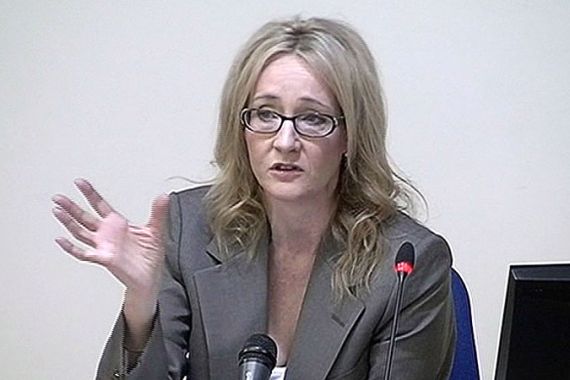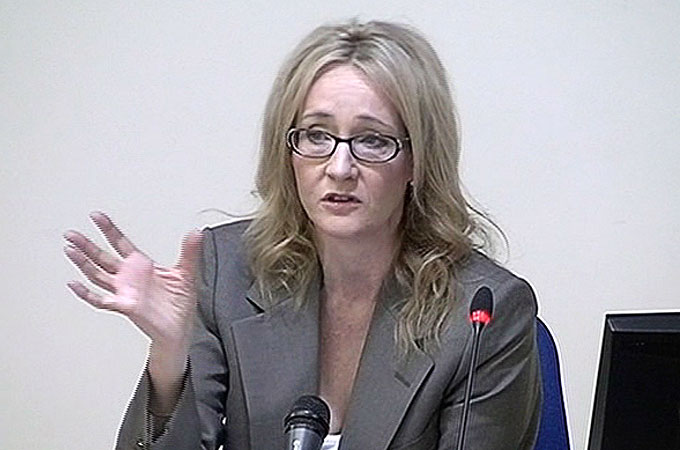JK Rowling says tabloids targeted her kids
Harry Potter author lambasts Britain’s press for invading her children’s privacy.

 |
| Author JK Rowling tells Leveson Inquiry that the press used her children to get to her [Reuters] |
JK Rowling, author of “Harry Potter” has told a public inquiry into British media standards that she was forced to move house because of tabloid harassment and had been made to feel like a hostage in her home after she gave birth.
During two hours of evidence on Thursday, Rowling revealed a note had been slipped into her five-year old daughter’s schoolbag by a journalist and of her outrage when the headteacher at one of her children’s schools was contacted to try to gain details about the final book in the Potter series.
Keep reading
list of 4 itemsGeorgia’s president vetoes controversial ‘foreign agents’ bill
‘Regime machinery operating efficiently’ as Tunisia cracks down on dissent
Why Egypt backed South Africa’s genocide case against Israel in the ICJ
“I unzipped her bag and … found a letter from a journalist,” said Rowling. “I felt such a sense of invasion.”
Rowling, who is protective of her three children’s privacy and has regularly complained to the press, said that if she did stand up to certain newspapers about their behaviour, they could be “spiteful” and seek retribution.
She said photos were taken of her children, particularly one of her eldest daughter in a swimsuit.
“A child, no matter who their parents are, deserves privacy,” said Rowling.
Earlier on Thursday, actress Sienna Miller said she had been placed under a “web of surveillance” by a tabloid newspaper which listened into her messages and read emails, prompting her to accuse family and friends of leaking stories to the press.
The 29-year-old star said she had been spat at and abused by paparazzi seeking a reaction.
The Leveson inquiry, held in London’s High Court, has seen a host of public figures from actor Hugh Grant to families involved in notorious murders explain how they have suffered at the hands of newspapers.
Ordered by Prime Minister David Cameron after it emerged that people working for the Rupert Murdoch-owned News of the World tabloid had hacked into the phones of thousands to secure stories, prompting a national outcry.
At the heart of the dispute between the press and those it reports on is what constitutes public
interest and whether a person’s presence in the public eye justifies a wider invasion of their privacy.